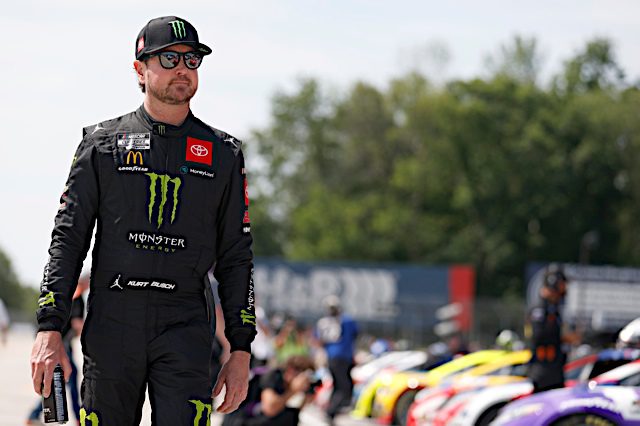The weather has been a big topic this week. As amateur meteorologists, NASCAR fans and pundits have a unique perspective on weather and all the myriad of factors that contribute to its existence and output. Of course, this knowledge comes to the forefront only after said weather has affected a NASCAR race.
This past weekend brought about another delightful example of NASCAR’s ongoing testy relationship with weather, or more specifically, rain. Call it precipitation, the wet, a sprinkle, a drizzle, mizzle, Scotch mist, a shower, a rainstorm, cloudburst, torrent, downpour, deluge, squall, thunderstorm, or what have you, but please stop calling it weather. Weather is any atmospheric condition — a cloudless sky is also weather. So yes, the rain caused a bit of a calamity at the NASCAR Cup Series race at Daytona International Speedway, sending the leading cars scattershot as they drove into a sudden shower, ending the day for more than half the field and denying everyone the drama of watching said cars probably wreck again at the restrictor-plate track.
Leading when the race halted, Austin Dillon stayed in front of the other 10 cars on the lead lap when the race resumed three hours later and earned the win that put him in the playoffs. The regular-season finale provided yet another winner, making it 16 on the season, with Ryan Blaney being the lone entry to make the playoffs on points. (Kurt Busch, who won at Kansas Speedway, rescinded his playoff eligibility waiver request, leaving two spots up for grabs at Daytona.)
Martin Truex Jr. almost took Blaney’s spot but his battered Toyota could do only so much, and with other hobbled vehicles returning to the garage he fell short by three points. Three measly points. Three effing points. Three positions over the course of 26 races. To think that he missed because of three spots is both silly and staggering. However, for all the drama surrounding Truex and the fascination of will he/won’t he make the playoffs, the truth is, it doesn’t matter. Statistically and historically, Truex would have had little chance to hoist the big trophy at the end of the year. Dillon and Blaney donʻt have of a shot at it either, for what it’s worth.
Consider that in 2004, when this experiment began with something called the Chase, Jeff Gordon ‘won’ the regular season and slotted into first. Gordon had put together a stellar year with five wins and under the previous scoring system looked all but assured of…
Click Here to Read the Full Original Article at Frontstretch…

